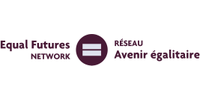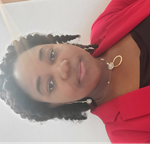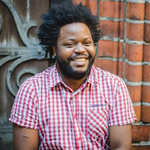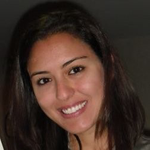8:30 AM - 9:00 AM
Doors and Registration open
9:00 AM - 9:30 AM
Opening Keynote - De-Colonizing Our Minds and Building Solidarity with Indigenous Communities
Presented in English
9:45 AM - 9:55 AM
Knowledge Spotlight: Mothers Matter Centre (HIPPY), Monique Best
Presented in English and French
9:55 AM - 10:05 AM
Knowledge Spotlight: Shelter Movers, Marc Hull-Jacquin
10:05 AM - 10:15 AM
Knowledge Spotlight: Canadian Chamber Woman of Commerce, Nancy Wilson
10:15 AM - 11:45 AM
Reimagining the Future of Health: Centering Equity, Women’s Rights and Indigenous Self-Determination in Healthcare
Around the world, gender inequality leads to stark health inequities for women and LGBTQIA+ people who confront unique health issues and barriers to care. For example, access to treatments, ...
Around the world, gender inequality leads to stark health inequities for women and LGBTQIA+ people who confront unique health issues and barriers to care. For example, access to treatments, sexual and gender-based violence as well as discrimination and harassment in healthcare systems are just a few areas in which women can experience barriers to safe, high-quality and culturally appropriate care. Evidence of this in the Canadian context is limited, but research has shown that cultural bias, discrimination, sexual harassment and intersecting marginalization of other equity deserving groups are areas that impact the on-going marginalization of women in healthcare systems. In particular, this can be seen in pregnancy and childbirth where medical establishments and health care systems have over-medicalized maternal health and as a result erase women’s experiences and inherent knowledge and autonomy over their own bodies.
Join us on June 8th for a 90-minute panel discussion that will explore the intersections of women’s experiences in pregnancy and childbirth in Canada - in mainstream systems as well as through experiences of Indigenous women - and compare them to those of women around the world. Through these conversations we will demonstrate that the experiences, while diverse, are actually not vastly different and discuss a movement for global health equity that centres the voices, knowledge and traditional methods and cultural practices and how to move beyond patriarchal structures and relations of power, which create hierarchical and differential access to resources, representation, political influence, and to being “heard” in healthcare systems.
Presented in English
view more 12:30 PM - 1:00 PM
In Conversation with the Hon. Harjit Sajjan, Minister of International Development
Presented in English
1:00 PM - 2:00 PM
Breakout Session - GE for Whom? Intersectional Perspectives on the Gender Equality Movement.
Gender equality is not only a fundamental human right, but a necessary foundation for a peaceful, prosperous and sustainable world. While the past few decades have demonstrated some progress...
Gender equality is not only a fundamental human right, but a necessary foundation for a peaceful, prosperous and sustainable world. While the past few decades have demonstrated some progress, in a recent report released by Equal Measures 2030 “less than a quarter of countries are making ‘fast’ progress towards gender equality, and one in every three countries are either making no progress at all or moving in the wrong direction. At the current pace, the 2030 deadline to achieve gender equality will not be met.” From the disparate impacts of the COVID-19 crisis in communities around the globe to international protests against racism and discrimination, current events have shown that we are far from achieving equality and it is even further out of reach for individuals who experience intersectional inequalities that compound and put them even further behind or left out of the equality conversation entirely.
Understanding the impacts of intersectional and structural inequalities is a global challenge We know that black women, queer women, trans women, disabled women, Indigenous women, refugee and immigrant women, women of color, poor women or women who have a variety of these and other identities, experience oppression or discrimination differently from women who do not share those same identities. Without understanding how inequalities combine and accumulate, it is hard to identify the problems and, therefore, the solutions.
Join us on June 8 from 12:45-1:45pm EDT for a one hour fireside chat that will explore strategies to take intersectional feminism from theory to practice and unpack the solutions needed for the gender equality movement to better incorporate an intersectional lens so that it is inclusive of the multiple identities and experiences and truly transforms into a movement for all.
Presented in English
view more 2:15 PM - 3:00 PM
Closing Plenary: Fireside chat with the Honourable Maryam Monsef, P.C.
Presented in English








